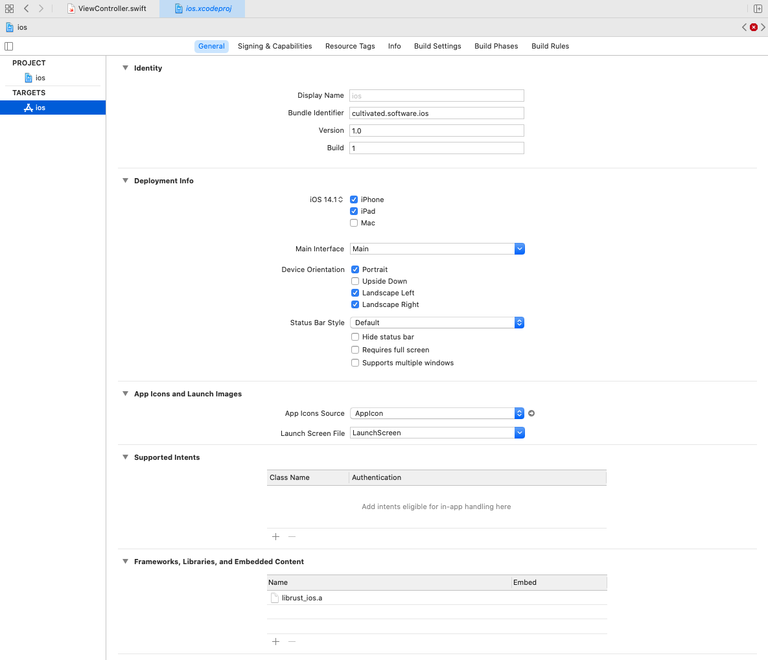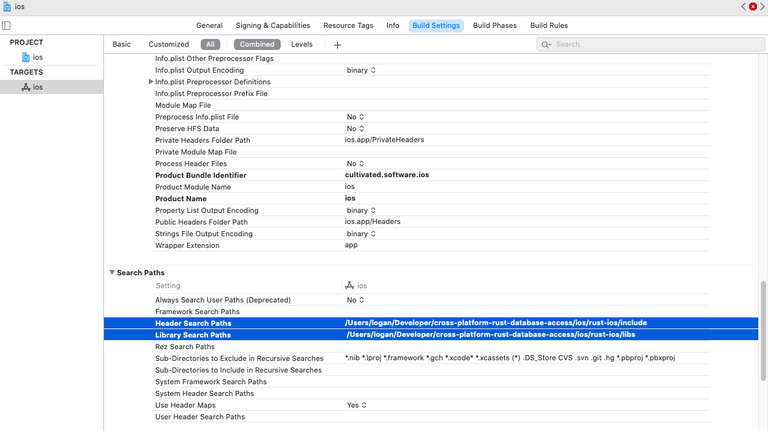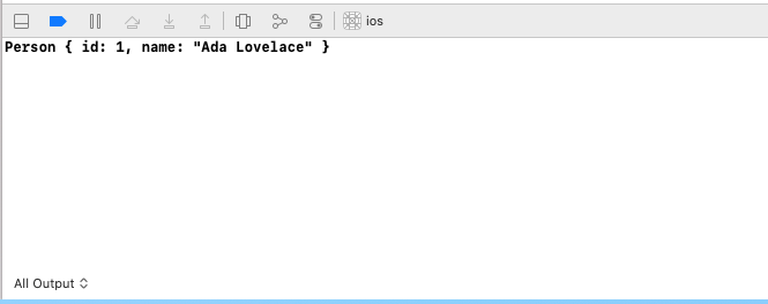This post is part of a series of posts focused on Cross-Platform Rust: Database Access. This post will cover integrating the rust-core library with iOS. You may also be interested in Cross-Platform Rust: Database Access with Node.js Integration or Cross-Platform Rust: Database Access with Android Integration
Start by installing the required rust targets for iOS
rustup target add aarch64-apple-ios
rustup target add x86_64-apple-ios
Install the cargo lipo to create a universal iOS library and cbindgen to create C headers.
cargo install cargo-lipo
cargo install cbindgen
Create a new rust library for the iOS bindings inside the /cross-platform-rust-database-access directory
cargo new rust-ios --lib
Update the cargo.toml file and set the crate type to dynamic system library and a static system library. Also, include
rust-core as a dependency.
[lib]
crate-type = ["staticlib", "cdylib"]
[dependencies]
rust-core = {path= "../rust-core"}
Update src/lib.rs wth the code below. The binding expects a parameter for the database path, so it can be provided to
rust-core
use std::os::raw::{c_char};
use std::ffi::{CString, CStr};
use rust_core::database_test;
#[no_mangle]
pub extern fn call_database(to: *const c_char) -> *mut c_char {
let c_str = unsafe { CStr::from_ptr(to) };
let database_path = c_str.to_str().unwrap().to_string();
let database_result = database_test(database_path);
CString::new(database_result).unwrap().into_raw()
}
#[no_mangle]
pub extern fn call_database_free(s: *mut c_char) {
unsafe {
if s.is_null() { return }
CString::from_raw(s)
};
}
Next, build the library and create the corresponding header files.
cbindgen src/lib.rs -l c > rust-ios.h
cargo lipo --release
Open up Xcode to create a new App using the Storyboard interface and name it ios.
Update the ViewController with the following code. It gets the path to store the SQLite database file, calls the database, and prints the result out to the logs.
import UIKit
class ViewController: UIViewController {
override func viewDidLoad() {
super.viewDidLoad()
// Do any additional setup after loading the view.
let dirPaths = NSSearchPathForDirectoriesInDomains(.documentDirectory, .userDomainMask, true)
let result = call_database(dirPaths[0] + "/database.sqlite")
let query_result = String(cString: result!)
call_database_free(UnsafeMutablePointer(mutating: result))
print(query_result)
}
}
Copy over the binary library and header files from rust-ios to the ios project.
# inside the ios project directory
mkdir -p rust-ios/libs
mkdir -p rust-ios/include
cd ../
cp rust-ios/rust-ios.h ios/rust-ios/include
cp rust-ios/target/universal/release/librust_ios.a ios/rust-ios/libs
Add librust_ios.a under Frameworks, Libraries, and Embedded Content in your iOS project.

Set the Header Search Paths to ios/rust-ios/include and Library Search Paths and ios/rust-ios/libs.

Set the Objective-C Bridging Header to ios/rust-ios/include/rust-ios.h.

Finally, run or debug the app to see the database call result in the logs.

Congratulations, an iOS app is now calling Rust to access a SQLite database! Check out the rust-ios source and ios source.
Lots of credit goes to Emil Sjölander for help with the bindings and iOS project setup.